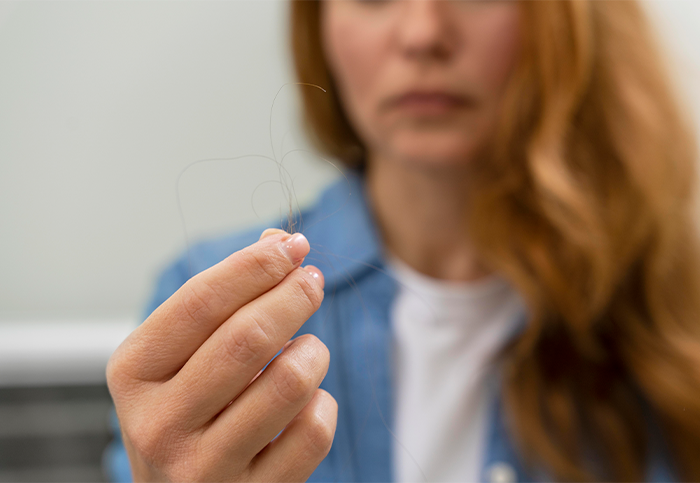Healthy Ramadan Eating Tips: What to Eat and What to Avoid
The holy month of Ramadan is a time of deep spiritual reflection and devotion for Muslims across the globe. It is a month-long period of fasting from sunrise to sunset that Muslims observe it. However, fasting for such extended periods can be demanding and requires careful meal planning to ensure the body gets the nutrition it needs. In this blog, we will discuss some healthy Ramadan eating tips, including what to eat and what to avoid, to help make the fast as healthy and productive as possible.

Healthy Eating Tips for Ramadan
Eating healthy during Ramadan is crucial for maintaining good health and well-being throughout the month. A balanced and healthy diet during this period can help avoid health problems such as dehydration, low blood sugar levels, and fatigue. Moreover, it is also a time to reflect on the importance of self-control and discipline in maintaining a healthy lifestyle. By making wise food choices and eating in moderation, you can ensure a healthy and fulfilling Ramadan experience. So, be mindful of what you choose to eat.
Here are some great food choices that can help you maintain your health and keep your energy levels up.
1. Water
Water is essential to stay hydrated during Ramadan. Drink an ample amount of it during non-fasting hours to prevent dehydration. Moreover, it is important to note that water provides the essential medium for all the catalytic reactions occurring in our bodies. Staying hydrated keeps the digestive system works best.
2. Dates
Dates are an excellent source of natural sugar, fibers, and vitamin and minerals such as copper, magnesium, and potassium, making them a perfect food to break your fast. They provide a quick energy boost to the body, which is essential after hours of fasting. In addition to providing energy, dates have been shown to have numerous health benefits, including improving digestion, promoting heart health, and reducing inflammation.
3. Complex Carbohydrates
Foods like brown rice, whole wheat bread, and oats are excellent sources of complex carbohydrates that provide long-lasting energy to the body. Must take complex carbohydrates at the Suhoor time to stay full longer and not feel hungry. Complex carbohydrates break down in the body slowly and provide you with energy for a longer time.
4. Proteins
Include foods like lean meats, fish, eggs, and legumes in your meals to ensure that your body is getting enough protein to maintain muscle mass and support bodily functions. You can intake protein at the Suhoor or iftar time. Eating protein-rich foods at dinner will give you a satiety feeling immediately, preventing you from overeating.
5. Fruits and Vegetables

Fresh fruits and vegetables are a rich source of vitamins, minerals, and antioxidants that the body needs to stay healthy. Include a variety of colorful fruits and vegetables in your meals to get the most benefits. You can add this nutrient-dense food at the Suhoor as well as iftar time to stay healthy, active, and fresh.
6. A Good Quality Multivitamin to Stay Active and Energetic
Taking a good quality multivitamin can be incredibly beneficial to stay active and energetic during this holy month. A multivitamin can help you meet your daily nutritional needs and fill in any gaps that may be missing from your diet. Plus, it can help boost your energy levels, keep your immune system strong, and ensure your body functions at its best.
The best quality multivitamins include Nutrifactor's B-50 Complex, Multifactor (for both men & women), Vitamax Women, and Vitamax One A Day Multi for women's and men's health, respectively. The best time to take multivitamins during Ramadan is with a Suhoor meal so you remain active & energetic during your fasting hours.
What to Avoid During Ramadan?
During Ramadan, it's crucial to make wise choices when it comes to food. As tempting as those deep-fried samosas and overly sweet desserts may be, it's important to remember that what you put in your body directly impacts how you feel, both physically and mentally. So why not opt for healthy, natural, and organic options instead?
Here is the list of foods you should avoid taking in excess.
1. Excessive Intake of Fried and Fatty Foods
Foods like samosas, fried chicken, and high-fat meat are high in calories and can lead to weight gain if consumed regularly in uncontrolled portions.
2. Sugary Drinks
Sugary drinks like soda, fruit juices, and sweetened tea are high in calories and can lead to dehydration. Instead, drink fresh fruit juices, which contain natural sugar as well as plenty of vitamins and minerals.
3. Processed Foods
Processed foods like chips, crackers, etc., contain high levels of salt, sugar, and preservatives. These foods can lead to different health problems if consumed regularly.
4. Caffeine
Caffeine can cause dehydration and can also interfere with sleep, which can be a problem during Ramadan when sleep is essential. Try to limit your intake of caffeine during Ramadan.
5. Overeating
Fasting can lead to hunger and overeating during non-fasting hours. Practicing portion control and eating balanced meals is essential to avoid overeating and digestive issues.
Conclusion:
In conclusion, Ramadan is an amazing time for spiritual reflection and physical health. It is essential to practice healthy eating habits during this time to ensure the body gets the nutrition it needs to maintain health and well-being. By following these healthy Ramadan eating tips, you can make the fast as productive and healthy as possible.
References:
- https://www.nutrition.org.uk/putting-it-into-practice/food-seasons-and-celebrations/a-healthy-ramadan/
- https://www.healthline.com/health/food-nutrition/practical-tips-to-safely-fast-during-ramadan
- https://zerolongevity.com/blog/how-to-stay-hydrated-while-fasting/
- https://health.cornell.edu/about/news/ramadan-fasting
- https://www.sciencedirect.com/science/article/abs/pii/S0268005X1630340X



